The truth about Yulin: People killing the dogs are no different to livestock farmers
The controversial festival in China was banned by government - but Yulin officials refused to acknowledge it.
Earlier this year, it was revealed that the Chinese government would impose a temporary sales ban during the annual Lychee and Dog Meat festival in Yulin, much to the celebration of animal rights campaigners worldwide. Despite this, the festival has begun and there are reports that dead dogs are hanging from meat hooks at stalls in Dongkou market.
The internal order in May was considered particularly encouraging because vendors had been advised any violations could result in a hefty penalty and detention.
Yulin officials, however, declined to confirm the internal order, for fear of antagonising the dog meat traders.
Issuing orders through internal channels is no secret in China. In May 2014, Yulin authorities ordered that all government officials and their families must not patronise dog meat restaurants during the festival.
Last year, following a visit to Yulin I wrote that it was arguably China's most "famous" small city. Notoriety is perhaps a better term to describe its global fame, however.
I witnessed metal sticks being used to hit dogs on the head to stop them fighting. Workers cut their throats open. Dogs thrown into spinning de-hairing machines. But the most brutal part of the slaughter is that killing is conducted in front of the terrified dogs who witness the entire process of a dog's brutal death, its disembowelment, cleaning and blowtorching.
Yulin, in southwest Guangxi, packaged mass dog slaughter as a tradition and a festival - to the outrage Chinese public and the international community. The celebration of dog slaughter as a festival was outrageous because of one additional reason: whole-hearted government endorsement at the time of its launch in 2010.
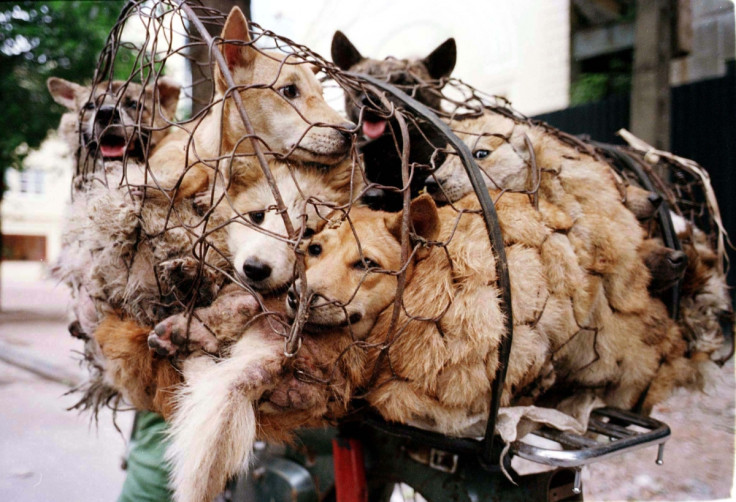
The festival had its heyday in 2011, when thousands of dogs, many of which were stolen pets and rural guard dogs, were brutally killed. Some slaughter operations were inside residential areas causing mental trauma to young children in this already desensitised city. As a result, Yulin became synonymous with cruelty and insensitivity. Without public opposition, Yulin authorities may not have even realised that mass dog slaughter was not something to be proud of.
But all the parties involved in the festival are somewhat trapped in myths and misunderstandings.
The glorification of mass dog slaughter as a 'tradition' by the dog meat traders is purely self-serving. Government echoing the traders' claim is a sign of poor judgement, as scholars who study the issue have failed to find evidence to substantiate the tradition claim. The festival was never heard of beyond the city proper, and the eating of dog meat in Yulin, like in other places, was the result of commercial activities. 'Tradition' cannot paper over the profit motive of the controversial trade. The traders and their supporters need to realise that tradition is no fig leaf. If tradition had been an effective defence, women in China would still have bound-feet.
"Yulin only slaughters meat dogs raised on the farms" is often repeated by the traders and their supporters. Journalists, animal welfare organisations and scholars have all failed to locate farms for raising the so-called "meat dogs."
China did experiment in dog farming in the 1990s. To the outrage of animal lovers in the Switzerland, the St. Bernard was once used by Chinese dog farmers to cross breed meat dogs. Eventually, the high cost of dog farming discouraged the experimenters who decisively shifted to pet dog breeding. In 2014-2015, none of the owners of the seven "meat dog farms" I contacted supplied dogs to restaurants. They sold pet dogs only. And they were not lying - a Chow Chow can fetch up to 3000 yuan as a pet. As food, it sells for no more than 300 or less.
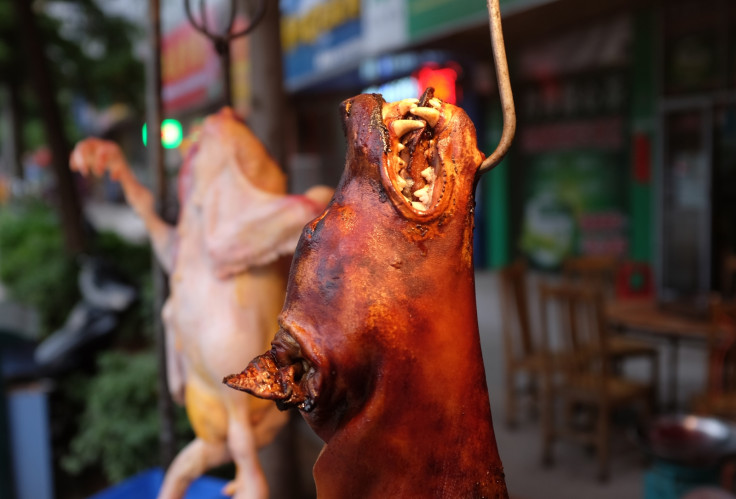
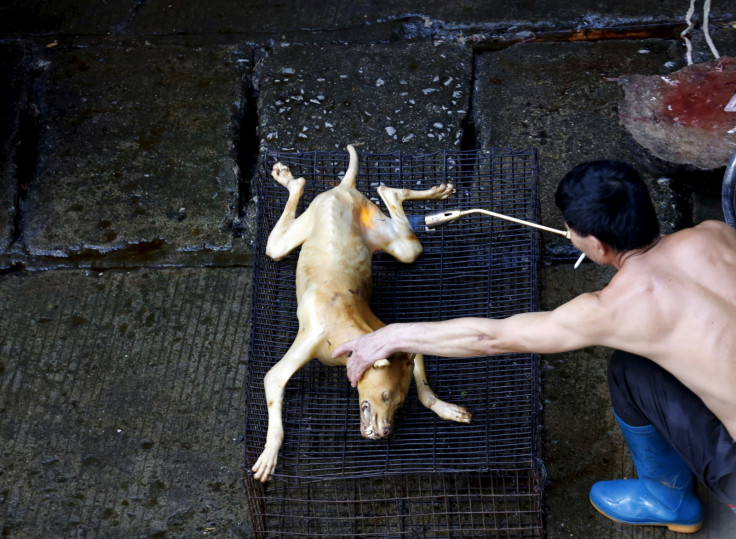
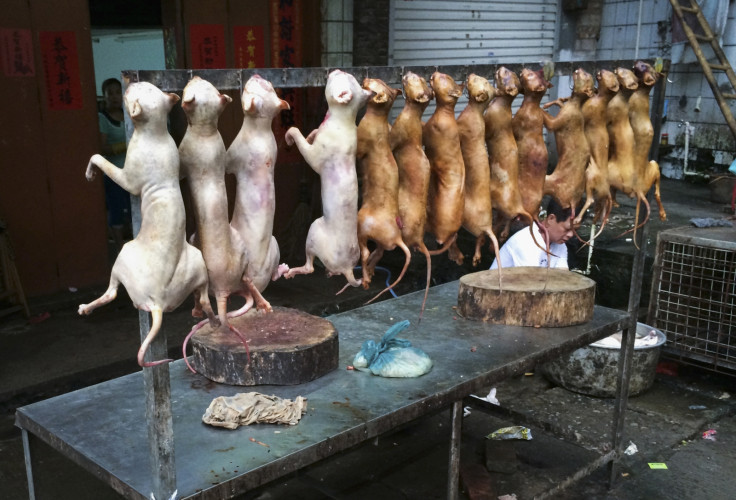
Yulin authorities should not have whitewashed their original support of the festival. No government is mistake-free. In 2010, a government agency in Yulin enthusiastically revealed to a local media that a gourmet festival featuring Yulin's dog meat would be "passionately unveiled." The reporter also learned that the festival was "initiated by the government, conducted through inter-agency collaboration, and participated by businesses."
So was the local government-controlled media lying? In 2008, Guangxi Daily, the provincial Communist Party mouthpiece, reported that Yulin was planning to promote dog meat festival as a "traditional gourmet festival of Yulin."
The Yulin authorities could win points by admitting and learning from the mistake. Hasn't China made earth-shaking progress after admitting and correcting the ultra-Leftist economic policies of Mao's years?
The dog meat traders, desensitised and marginalised with limited skills, are no monsters
"This is a war of culture between China and the West," a supporter of the festival wrote me in private. "Stop imposing your dog loving culture on us Chinese," he added.
The Yulin dog meat festival has indeed elicited international criticism. In 2016, 11 million people outside China signed petitions for an official end to the festival and the dog meat trade. The British Parliament talked about it. In U.S. Congress, a Congressional resolution (H.R. 30) proposed by Congressman Alcee L. Hastings and co-sponsored by more than 160 members called for an end to the festival. But, the war on the festival was started first by the Chinese.
In ancient China, the imperial court also launched a war on dog slaughter for food. Chinese emperors tried twice to outlaw dog meat consumption. Mass dog slaughter does hurt animal lovers around the world. But, the festival and the trade are against the interests of Chinese people.
Animal lovers must be informed to be effective.
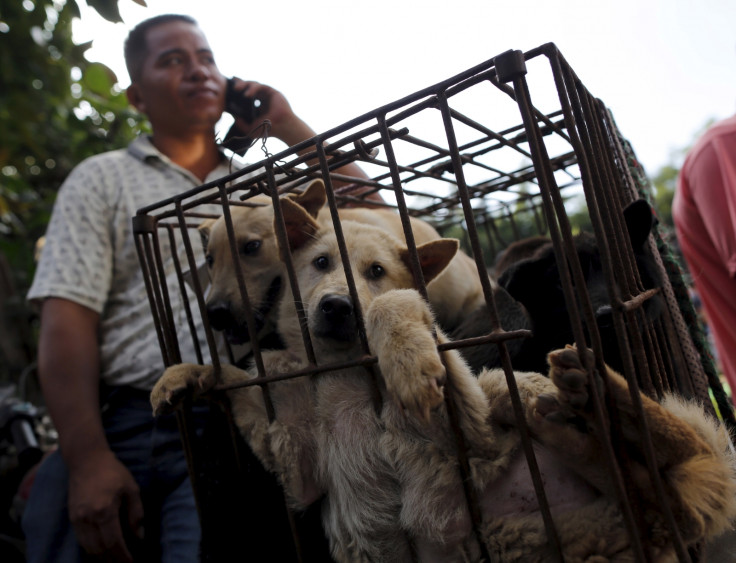
Are Yulin's dog meat traders monsters who intentionally torture dogs to produce better tasting meat? The answer is no. Dog slaughterhouse workers I interviewed are not different from their counterparts in livestock slaughter operations. "We are here to make money, not to feel high from torturing the dogs," they said. "We don't have the time to kill a dog slowly," they added.
China has no shortage of sick animal abusers who go to extremes to hurt animals. But, torturing dogs for better tasting meat is not standard industry behavior.
The festival or the industry does not need sadists to make it more ugly. Dogs shipped to Yulin are in shocking and suffocating cages. They do not have the required health documents, a wanton violation of the national policy on trans-provincial dog transport. A significant number of the dogs are stolen pets and owned rural dogs, a criminal act according to China's criminal law. They are lucky if they die on the road. At the slaughterhouses, killing takes place in front of the dogs waiting for their turn, the worst form of mental torture. The majority of the dogs who witness other dogs' killing have died many times inside long before their own heartbeat stops.
The dog meat trade with its intrinsic cruelty makes those involved in the business heartless.

"Are the Chinese culturally programmed to animal cruelty?" I have encountered this question many times. As I said, those who stood up first against Yulin were Chinese. Many of them helped shut down the Jinhua Dog Meat Festival in 2012. In the last six years, more than 20,000 dogs have been rescued on the highway from trucks bound for slaughter.
China has a tradition of compassion. Daoism saw humans and nonhuman animals as equals. Buddhism underlay the traditional support for vegetarianism, mercy release and slaughter suspension. Confucianism, though anthropocentric, placed higher values on kindness and benevolence. Animal protection took roots in the 1930s. At that time, the Chinese government supported societies against cruelty and established laws to protect working animals.
Yulin is at a crossroads.
The nationwide opposition suggests that Chinese people do not agree to the glorification of dog slaughter as "tradition." Taiwan's recent ban on dog meat consumption is telling evidence that Chinese culture is no roadblock to animal protection progress. The Chinese activists and international supporters are not making unreasonable demands on Yulin. They call for a faithful implementation of China's existing laws and policies governing food safety and trans-provincial dog transport.
The dog meat traders, desensitised and marginalised with limited skills, are no monsters.
Foreign critics have no intention to destabilise China. Like their Chinese counterparts, their opposition is directed at a cruel and commercial activity glorified as "tradition" and celebrated as a festival.
We expect the Yulin leaders to stand on the right side of history.
Peter J. Li, Ph.D. is Associate Professor of East Asian Politics at the University of Houston-Downtown and China Policy Specialist at the Humane Society International
© Copyright IBTimes 2025. All rights reserved.






















